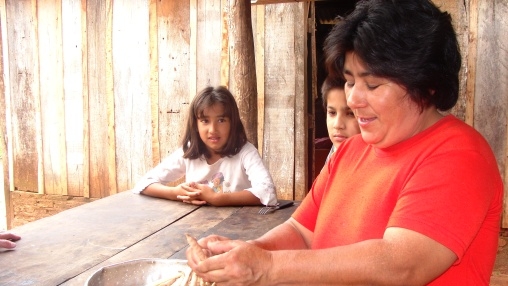Librada González carefully places her garden products in two large baskets to carry them to the municipal market in Caaguazú, 20 km from her farm in Cantera Boca, a community in eastern Paraguay.
She has to walk a kilometer and wait for a bus that drops her close to the market. The trip is tiring but she returns satisfied with her sales: about US$20 per week. "We can buy some food and school supplies," says.
Librada's family is one of the 3,000 that are benefitting from a production investment fund of the Sustainable Rural Development Project (Proders in spanish) of the Ministry of Agriculture (MAG) with technical and financial support from the World Bank.
The project is implemented in San Pedro and Caaguazú Departments and is aimed to small farmers with less than 20 hectares of land -there is an average of 5 hectares per farmer- in 61 watersheds of rural communities and 73 indigenous communities.

